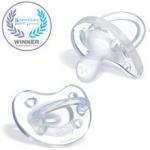Many parents tend to worry when their baby is snoring. Should you really be concerned? Most pediatricians will tell you that baby snoring is common and it usually does not indicate a serious problem. Your baby may snore because his breathing airways are still narrow and small. They are also likely to be filled with mucus and other similar secretions. When your baby breathes, the air he takes in tends to collide with these discharges. As a result, your baby may make noises usually described as snuffling, snoring, or whistling. Snoring in babies can usually be addressed by the right snoring solution.
When your baby has a cold, that is more likely to lead to snoring. This is also the case when he has allergies, or swollen tonsils or adenoids.
In general, the issue is likely to resolve itself, and as your baby grows, his airways will expand, becoming bigger and wider. This allows your baby to breathe without making noise.
Snoring Solutions
The following solutions will help you address your baby’s snoring:
Hosing
If your pediatrician approves, you can hose your infant’s nose to help him breathe more easily. Salty nasal sprays are available in most pharmacies.
You can also opt to make a basic nasal spray for your baby. Use 8 ounces of distilled water and simply add ¼ teaspoon of sea salt.
Squirt two or three drops of the saline solution once a day into your baby’s nose. The solution will help clear his nasal passages and ease his breathing.
You can also gently suction excess secretions by using a nasal aspirator. Here are a few good ones:
- Snotty Boss Nasal Aspirator
- NoseFrida the Snot Sucker
- Battery-Powered Snot Sucker
- Or, if you’re on a budget, a simple nasal bulb syringe will work.
Humidifying the Air
Central heating tends to dry out the air. When your baby has a clogged nose, it helps to humidify the air in his bedroom. Using a warm mist vaporizer helps to do this.
Before putting your baby to sleep, you can give him a warm bath or shower. The warm humidified air will help ease and loosen nasal secretions so that your baby can sleep more comfortably.
A humidifier helps to sustain a level of humidity that promotes ease of breathing. It is not a treatment for snoring but it helps your baby breathe and sleep more soundly.
Controlling Allergens
Your baby may also snore when he has allergies, a cold, or other respiratory conditions. Make sure that you keep the surroundings free from dust, pet dander, and other allergens that may trigger such problems. Keep your baby’s room clean and well-ventilated.
Changing Your Infant’s Sleeping Position
Your baby’s sleeping posture may trigger snoring. Research shows that a baby who sleeps on his stomach is more likely to snore compared to a baby who sleeps on his side. The latter usually sleeps more quietly.
Moreover, it is better not to encourage your newborn to sleep on his stomach. He may find it difficult to turn his head to breathe when he assumes this sleeping position.
New studies indicate that the best thing to do is to have your baby lie on his back AND tilt his head to the side. This position will decrease the prospect of airway constriction. You can alternate tilts to the right and left sides.
Do not use snoring remedies or medications that you can buy over the counter. These are not intended for children or babies.
Baby snoring is likely to gradually subside as your baby matures and his airways expand.
Health Risks Associated with Baby Snoring
If your baby’s snoring persists and grows worse, consult your pediatrician. He may conduct a polysomnogram, a test that documents your baby’s breathing patterns as he sleeps.
Heed your instincts. If your baby’s snoring makes you anxious, inform your pediatrician about it in your next visit.
The doctor will do a thorough check on your baby’s airways to make sure that there are no structural issues or serious obstructions.
It is possible that the bone between the nasal passages, or what is clinically referred to as the nasal septum, leans to one side, resulting in the partial blocking of that nostril. If this is the case, your baby is likely to compensate by breathing heavily through the other nostril. This causes noisy breathing.
Your doctor will also take a look at your baby’s throat. He will check for structural abnormalities like cysts or atypical movement of the palate.
Your doctor will observe how your baby breathes. There are some babies who have laryngomalacia, a peculiarity that results in noisy breathing. A baby with this condition usually has underdeveloped cartilage which is unable to keep the nasal passages open.
If there are structural problems behind your baby’s snoring, your pediatrician will refer you to a sleep specialist or an ENT (Ear, Nose, and Throat) Specialist who will determine if your baby needs further evaluation or treatment.
Conclusion
Structural problems may cause baby snoring. In general, however, baby snoring is simply a result of immature airways and the bubbly secretions that fill them, causing the soft tissues along the airways to vibrate. The appropriate snoring solution will easily improve the condition.
Author Bio–
Katherine Dilworth is a wife, mother, and blogger and she writes on caseydilworth.com, this blog provides exclusive information on Why Do People Snore and Snoring Solutions.







